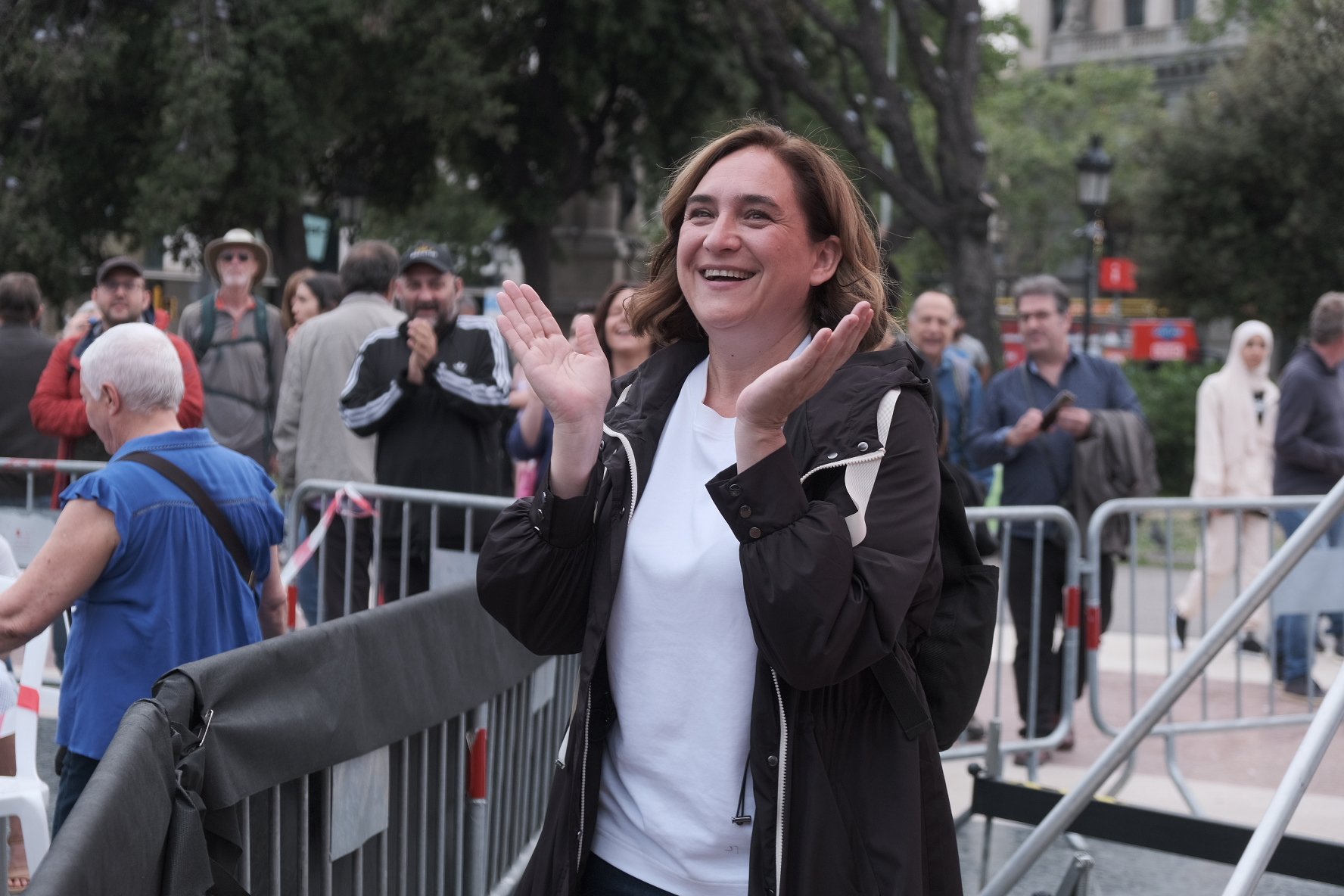Although the proposal made this Tuesday by the acting mayor of Barcelona, Ada Colau, to share the mayoralty with Jaume Collboni and Ernest Maragall seems doomed to failure now that the Catalan Socialists (PSC) have rejected it and the Republican Left (ERC) consider that they weren't actually told about it, the details have now emerged of how the Barcelona en Comú leader intended to divide up the city council pie with the Socialist and Republican candidates, with a distribution of mayoral and district representatives based on equal shares of power between BComú and PSC and half as much to ERC, as a rather weighted recalculation of the electoral results in favour of the Comuns, after the May 28th totals were 10 councillors for the PSC, 9 for BComú and 5 for ERC.
In the document sent to the PSC and ERC, Colau proposed five deputy mayors: two for Socialists, two for the Comuns and one for ERC, and a similarly-proportional distribution of Barcelona's ten district councils - four for the PSC, four for BComú and two for the Republicans, although without clarifying what the powers of the deputy mayors or the territorial distribution of the districts would be. According to Colau's proposal, the area of each deputy mayor would include councillors from the other political forces, as a counterweight. The name of the municipal manager would have to be agreed, as well as the managers in the five reference areas created.
Comuns say a progressive pact is "inescapable"
In the document, the Comuns note that the city "has a long left-wing tradition", and that after the May 28th elections, a progressive majority has once again been created, with more than 50% of the votes and 24 of the 41 councillors in this category, thus making it "inescapable" that a progressive pact needs to be formed, with "specific objectives and projects with the highest ambition", and a structure that "distributes responsibilities with clarity and co-responsibility".
BComú backs the need to provide effective responses to the climate crisis, with citizen dialogue and consensus, making a commitment to measures that will lead Barcelona to be an emissions-neutral city with a decarbonized economy. It also advocates the promotion of public transport with new investments, and the completion of projects such as the connection of the tramway network, as well as encouraging the use of all modes of public transport as the main mechanism of transition towards a sustainable mobility model for the 21st century.
The Vox councillors won't "do a Valls"
However, Jaume Collboni's PSC quickly rejected the three-way slicing of the cake, asserting that, on the one hand, their voters would not understand this mayoral formula shared between three different parties, and on the other, it would not provide the stability that Barcelona needs. As well, one of the other options to bring a Collboni-Colau council to power also seems to have evaporated this Tuesday. Although Collboni had made it very clear that he would not negotiate with the extreme right in order to be mayor, it had until now remained possible that, as with Manuel Valls in 2019, the two Vox councillors would simply give their two votes for free to the PSC-Comuns pact to shut out the greater evil of the independence movement. Today, however, the Vox spokesperson in the Catalan Parliament, Joan Garriga, announced that the two city councillors-elect (Gonzalo de Oro-Pulido and Liberto Senderos Oliva) will vote for the Vox leader to be mayor, ruling out that they could support in Collboni to prevent Xavier Trias from being the new mayor of Barcelona.
The investiture of all mayors in the Spanish state is scheduled for this Saturday, June 17th, but it's just possible that there could a change of script in Barcelona - because of Vox itself - if the party continues to pursue its demand for a recount of invalid votes, conceivably delaying the investiture until July 7th, when the campaign for the Spanish general election begins.
Trias team: Colau's "personal survival" plan
Sources in the candidacy of election winner Xavier Trias (including members of Junts, the PDeCAT, Demòcrates and Moviment d'Esquerres) said they saw the plan by the acting mayor of Barcelona "in terms of personal survival" and consider that it is a "last desperate move to save her neck." In this regard, this proposal that they call a "tri-mayoralty" has the objective of "staying in power" and has "nothing to do with the left, it doesn't even have anything to do with Barcelona." Thus, the Trias for Barcelona team claims that the result of the municipal election of May 28th was very clear and that "Barcelona voted in favour of change". In this context, they argue that "the only guarantee" of this change is Xavier Trias "as mayor" so that the city "will once again be governed for everyone".
Meanwhile, Xavier Trias's contacts with the other parties continue and the candidate insists that he is committed to a "strong government" that could include the PSC and ERC. The most reluctant are the Socialists, who keep alive their option of presenting Jaume Collboni as a candidate for mayor. But if there is no alternative absolute majority - 21 votes - Trias could be elected mayor of Barcelona by virtue of being the municipal group that obtained the most votes on May 28th.
Above, Results of Barcelona mayoral elections 2023 (outer circle) compared with 2019 (inner circle). Numbers of council seats won.

